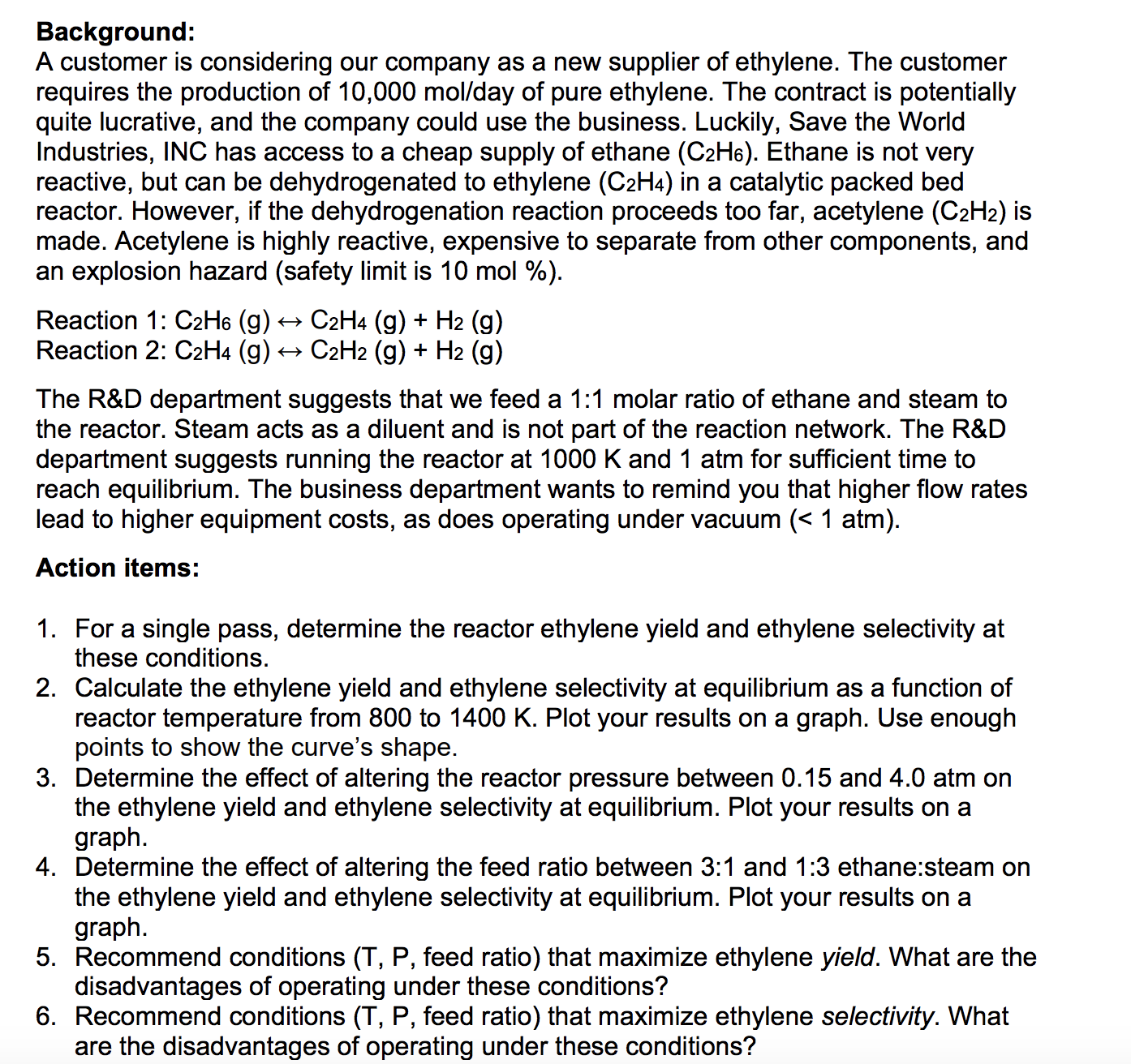Answered step by step
Verified Expert Solution
Question
1 Approved Answer
Background: A customer is considering our company as a new supplier of ethylene. The customer requires the production of 1 0 , 0 0 0
Background:
A customer is considering our company as a new supplier of ethylene. The customer
requires the production of day of pure ethylene. The contract is potentially
quite lucrative, and the company could use the business. Luckily, Save the World
Industries, INC has access to a cheap supply of ethane Ethane is not very
reactive, but can be dehydrogenated to ethylene in a catalytic packed bed
reactor. However, if the dehydrogenation reaction proceeds too far, acetylene is
made. Acetylene is highly reactive, expensive to separate from other components, and
an explosion hazard safety limit is mol
Reaction :
Reaction :
The R&D department suggests that we feed a : molar ratio of ethane and steam to
the reactor. Steam acts as a diluent and is not part of the reaction network. The R&D
department suggests running the reactor at and atm for sufficient time to
reach equilibrium. The business department wants to remind you that higher flow rates
lead to higher equipment costs, as does operating under vacuum atm
Action items:
For a single pass, determine the reactor ethylene yield and ethylene selectivity at
these conditions.
Calculate the ethylene yield and ethylene selectivity at equilibrium as a function of
reactor temperature from to Plot your results on a graph. Use enough
points to show the curve's shape.
Determine the effect of altering the reactor pressure between and atm on
the ethylene yield and ethylene selectivity at equilibrium. Plot your results on a
graph.
Determine the effect of altering the feed ratio between : and : ethane:steam on
the ethylene yield and ethylene selectivity at equilibrium. Plot your results on a
graph.
Recommend conditions feed ratio that maximize ethylene yield. What are the
disadvantages of operating under these conditions?
Recommend conditions feed ratio that maximize ethylene selectivity. What
are the disadvantages of operating under these conditions?

Step by Step Solution
There are 3 Steps involved in it
Step: 1

Get Instant Access to Expert-Tailored Solutions
See step-by-step solutions with expert insights and AI powered tools for academic success
Step: 2

Step: 3

Ace Your Homework with AI
Get the answers you need in no time with our AI-driven, step-by-step assistance
Get Started


